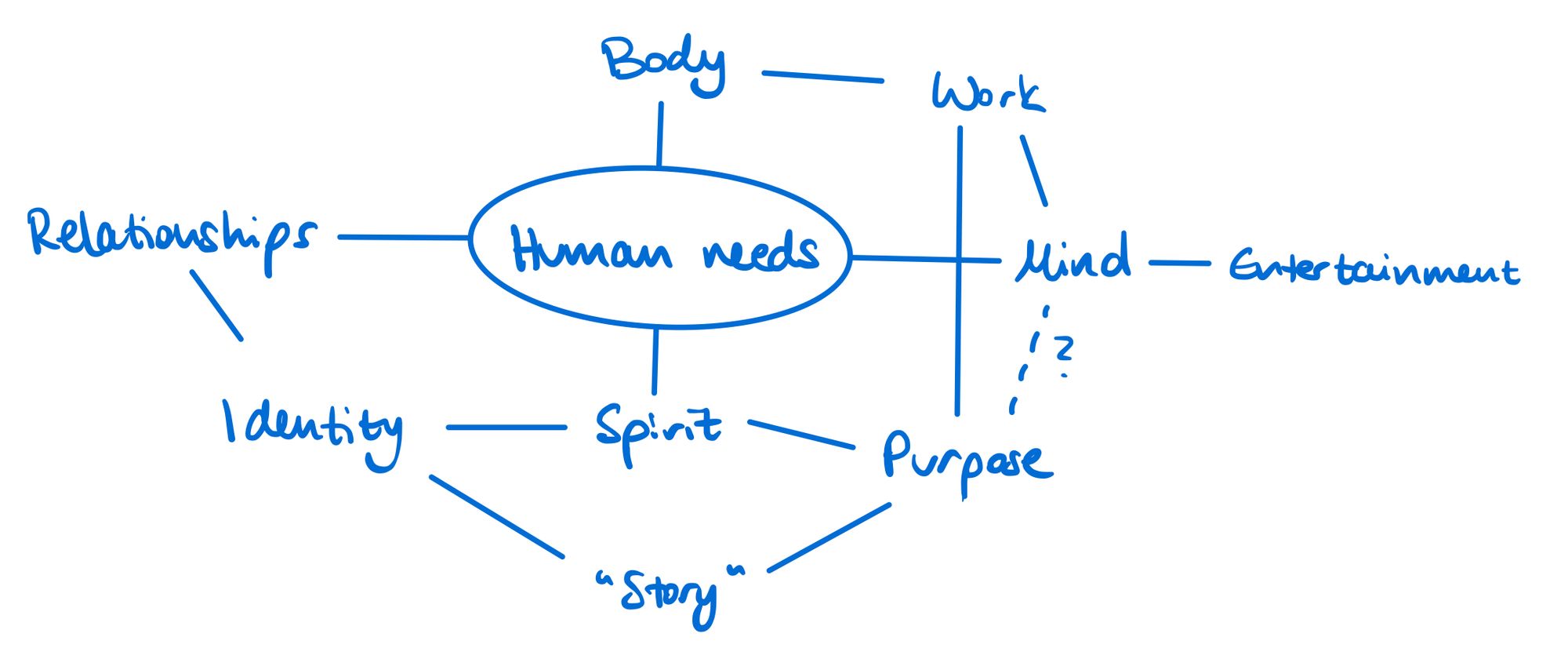What do I know is true?
- At the most fundamental level, humans can be seen as computers (Elon Musk) or machines (Ray Dalio) operating like objects that process and store (imprinting) intrinsic (genetic) and extrinsic (environmental) information (data).
- There are only two ways to live your life: One as though nothing is a miracle and the other as though everything is a miracle. (Einstein) Choose wisely.
- Bad change often happens abruptly. Good change… rarely happens abruptly. It is the accumulation of many small steps forward.
- Money is power.
- There is a melody that resonates in the entire universe.
- Listen to the grand music connecting you to the universe and everything around you.
- There is no need for sacrifice if there is passion. ?
- The process makes the person. Becoming by doing.
- We can learn anything. It is just a matter of time and how we process information.
- The art of memory is the art of attention.
- (S)He who enjoys something will attend to it more.
- We cannot determine the speed and effort of learning for a given individual – some earn degrees in mathematics at the age of 12 while it takes others until their mid-20ies, beyond or they might never do it. People are different, are given different strengths and weaknesses from conception, and the environment can reinforce or weaken these impressions.
- Accept the things you cannot change. If you can change them, do so. But if you can’t, do not get upset over them, since that will make you feel even worse than the situation itself. Rather, open your mind to think of ways in which you could alter the situation.
- Be honest. Honesty is the key to true greatness. Be sure you can face your own reflection in the mirror and in the mirror that your heart gives you – your conscience. And heart – accept nothing less or inferior than honesty, complete towards yourself and real towards others.
- You are a magician. Learning is magic, and magic is inside of us. Concentrate and channel it.
- Always think big. If you are going to think anyway, you might as well think big.
- Think. Thinking means defining, deciding your own destiny. Deferring from thinking, and from thinking big equals to giving your fate into the hands of somebody else.
- Be a volunteer to life.
- Do not disappoint or let down your friends if you can avoid it.
What will most affect the future of humanity?
Many things will affect the future of humanity. But which ones will truly change it, alter it in it fundamentally in its trajectory, roots and principles? How is the future of humanity going to look like in 30, 50, 200, 300, or 500 years?
“Business is a never-ending quest to deliver the same result in an easier fashion.” (James Clear)
What impact field has the greatest potential for growth?
Elon Musks’ takes (during college):
- Internet
- Individualist expression in visual (art, video, comics), auditory (music, audiobooks, podcasts), physical (sports, beauty, acting…), functional (technical, coding), literal (books, blogs, scripts, short stories…)…
- AI
- To discover patterns in everything: universe, pharmaceuticals, chemicals, storytelling; human nature & thinking
- To control & regulate
- Sustainable energy
- Reprogramming human genetic code
- Space exploration, in particular the permanent extension of life beyond Earth
- Symbiosis of humans and nature; tech & design & nature —> biotech, SynBio, design-inspired nature, nature-inspired tech, tech-inspired nature, design-inspired tech…
- Architecture, art, products, services, systems (?)
- Energy ?
- Government: increasing relevance as a customer, producer and regulator of tech - how will it use data?
- Force towards decentralisation and autonomy —> blockchain & crypto, independent networks/communities/tribes/organisations
- —> however, even if humans form well-functioning organisations nowadays that in the past may have well equated or increased the level of complexity of states and governments, what cannot be changed is that we are bound to our physical body - or not?
- Human enhancement
- Transcendence of physical body
- Extension of physical body through neuralinked devices
- Transport (these are primarily high-level extensions/improvements of already existing tech)
- Autonomous vehicles
- Hyperloop
- Anti-ageing & life extension
Thomas’ tips:
- History goes in cycles
- Innovation and scientific discovery go in cycles (Stephen Wolfram) - until one key advancement is made, there is slow, steady progress in a field, with moderate interest in it (“cold” phase) - then a revolutionary finding spurs a cycle of rapid discovery and high interest (“hot” phase”)
My brainstorming:
What is needed for a good life? Not much.
—> look at Thoreau, at communities that reject/do not have access to electricity; or old cultures in which people were content and striving
Human Needs
- Spirit ? - Entertainment - Work
- Are identity and story the same thing?
- Underselling relationships
- Spirit: believing, mind: discovering/exploring/thinking, Body: experiencing, Relationships: belonging

Needs and Inventions Examples
- Water —> water systems
- Food —> agriculture, modern trade
- Shelter —> houses, apartments, architecture, states
- Sanitary facility —> sewage system
- Freedom to move/exploration —> transport (horses, cars)
- Physical help —> clothes, tools, 3D-printers; FACILITATOR: electricity
- (Human) relationships —> friendships, family, “tribes”, pets
- Spiritual growth —> stories, religion, entertainment, science, schools, universities, art, music, (sports), yoga
- Space & silence -> mindfulness
- Purpose —> work, occupation, specialisation
- Body maintenance/growth —> medicine, sports
- Security —> relationships —> …, superstition, faiths
- Mind ->
Alfred Adler —> all human need is for feeling of security -> “it is ok to be here”
All of these themes can be bundled under the overarching human need for security (physical + social + spiritual). Basically, all comes down to community feeling. The community exceeds beyond that of humans, though, encompassing the entire ecosystem, planet Earth, the solar system, and everything in existence.
—> perhaps like in chemistry: goal is to reach the “lowest possible energy state” while preserving existence
Groundbreaking technologies provide tools for humans to address multiple needs at once (e.g. personal computer, smartphone, internet, paper…). They are gateways to solutions for specific needs, and enable the innovative creation of such solutions (e.g. websites, apps, robots…).
Where are things not ‘good enough’ or close to ‘good enough’ yet?
We have achieved much progress towards these goals/needs - in the past centuries/decades in particular. But what remains?
—> societal change: outdated government systems, inequality/unfairness:
continues to be a moving theme, source of insatisfaction (imagine: French Revolution, and people are still unsatisfied - their needs still haven’t been met, or think Marxism - there must be a reason why its ideas still prevail to this day)
—> housing: current methods unsustainable, impersonal, inflexible (imagine: many skyscraper-type building blocks were meant to cater for large population growth, urban migration and industrialisation - we need to move beyond the Industrial Revolution)
-> How should the houses of the future look like?
—> purpose: so many people feeling devoid of purpose, inpurposeful work, disconnection from internal story
—> relationships: people not close enough, great connectivity but people losing real connections
Next steps
After you have build hypotheses from First Principle Reasoning, you need to test the shit out of them, continually, and adjust them regularly based on the feedback you receive.
In other words, create a feedback loop that will help you improve, test and learn about reality in the quickest and most effective way possible.
Potentially interesting
Hedgehog Concept: Three overlapping circles:
- What lights your fire ("passion")?
- What could you be best in the world at ("best at")?
- What makes you money ("driving resource")
Thoughts on the evolution of technology to make me find a startup area to work on. Accumulated in early 2021.
